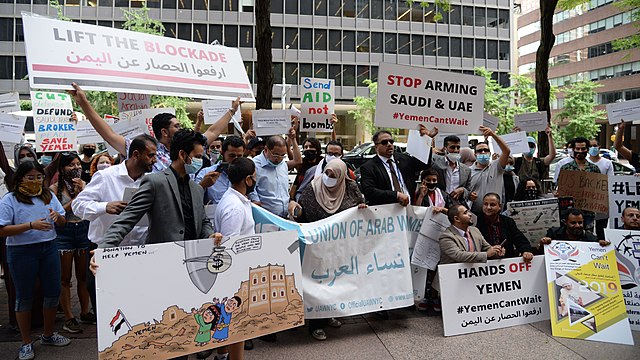Think of war-torn Yemen and cheer China-brokered deal between Saudi and Iran

Sections of the Western media have taken the symbolism of Riyadh and Tehran burying the hatchet in Beijing (on March 10) as a sharp poke in America’s eye and that of the US-led world order. But this may be a rather narrow and self-serving view. It would be healthy to at least partially see Iran and Saudi Arabia’s stated intention to re-establish diplomatic relations through a humanitarian lens.
Does the new agreement, mediated by China, mean there is finally, hope for Yemen, torn apart by civil war for the best part of a decade?
Yemen has been seen as so hopeless for so very long. It was in 2014 that Houthi insurgents — Shiite rebels with links to Iran – took control of Yemen’s capital and largest city, Sana’a. In March 2015, a coalition of Gulf states led by Saudi Arabia launched a campaign of economic isolation and airstrikes against the Houthis, with US logistical and intelligence support.
The ensuing conflict has taken a heavy toll on Yemeni civilians. In January 2021, the UN Humanitarian Affairs office said it is the world’s worst humanitarian crisis. In December 2022, Unicef, the UN’s children’s agency, said that more than 11,000 children were killed or maimed in Yemen’s civil war since it escalated nearly eight years ago and “the true toll of this conflict is likely to be far higher”. Two years before that, the UN estimated that 131,000 of the estimated 233,000 deaths in Yemen were the result of indirect causes like food insecurity and lack of access health services.
As part of the new deal, Iran has pledged to halt attacks against Saudi Arabia, including from the Houthis.
Accordingly, doesn’t the Chinese-brokered agreement deserve a warmer reception all around?
The coverage in some US media outlets has been rather sour-faced.
The Washington Post, for instance, said the statement issued by Wang Yi, China’s top diplomat, was “a jab at the United States”. Mr Wang had hailed his nation’s role as a “good-faith and reliable mediator” and declared that “the world is not limited to the Ukraine issue”. Jab or not, the point about the world being more than the Ukraine issue is well made. The Palestinians, anti-regime Iranians and others would heartily concur.
CNN adopted a slightly less aggrieved tone, pointing out that Beijing, unlike Washington, “has shown an ability to transcend the many rivalries that criss-cross the Middle East”. It also noted that China has “forged good diplomatic relations with countries across the region, driven by strengthening economic ties, without the Western lectures on human rights”.
The Wall Street Journal took a more magisterial view of the changing nature of geopolitical alliances in the Middle East. The Saudi-Iran deal “signals a sharp increase in Beijing’s influence in a region where the US has long been the dominant power broker,” it said, and could “complicate efforts by the US and Israel to strengthen a regional alliance to confront Tehran as it expands its nuclear program”. It quoted Ayham Kamel, head of Middle East and North Africa at political-risk advisory firm Eurasia Group, calling the deal a “quick win that showcases a new framework” of cooperation between China and the Middle East.
Two cheers for cooperation.

